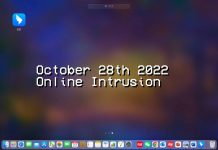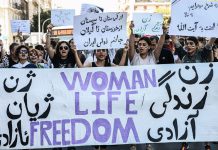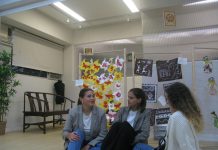But rather than becoming more critical of the Chinese government, he has become more understanding of its strong and centralised leadership, including the way it handled the student-led protest in 1989. “Now I think it was necessary [the decision made by the government in the June Fourth Incident]…For Deng Xiaoping, the country’s stability was very important. Political stability is the foundation for economic development, though it was very sad for the students,” he explains.
Tony says he has changed from having no view to looking at things from a pragmatic point of view after coming to Hong Kong. “Democracy was only a word to me before. Now I think democracy should be achieved step by step,” he says. For him, Hong Kong people are too idealistic in their pursuit of democracy. But he is afraid of sharing his views with local students in case they attack him for it. “I find it very difficult for local people and Mainlanders to communicate, no matter what I say, they say I’m brainwashed,” says Tony.
Tony is not the only one who is worried that he will be labelled as “brainwashed”. Galen Wong (not his real name), a 22-year-old mainland professional working in Hong Kong’s finance sector says what people call “brainwashing” is a political methodology that exists everywhere in the world, not just China. Wong says people have a choice over whether to believe the “brainwashing” ideas or to learn more. Wong says Mainlanders generally refuse to discuss sensitive political issues not because they are being “brainwashed” but because they do not want to get into trouble.
Like Tony, Wong thinks there is an abundance of information in Hong Kong and like Tony, he tends to take the pragmatic approach when analyzing political problems. He says the livelihoods of Chinese people have improved significantly in the last 30 years. As they can now enjoy a good life, they do not really need a change. “The histories [of Hong Kong and mainland China] are different, the circumstances are different. We have different mindsets,” says Wong. “I admire Hong Kong people’s courage [in fighting for democracy], but is it really practical?”
With access to a wider range of information in Hong Kong, Mainlanders here may turn out to be more liberal or conservative than they were before. But regardless of the outcome, Hong Kong’s media and information freedoms have provided them with the materials to further develop their own opinions and think critically beyond the great firewall.
Edited by Vanessa Cheung






































